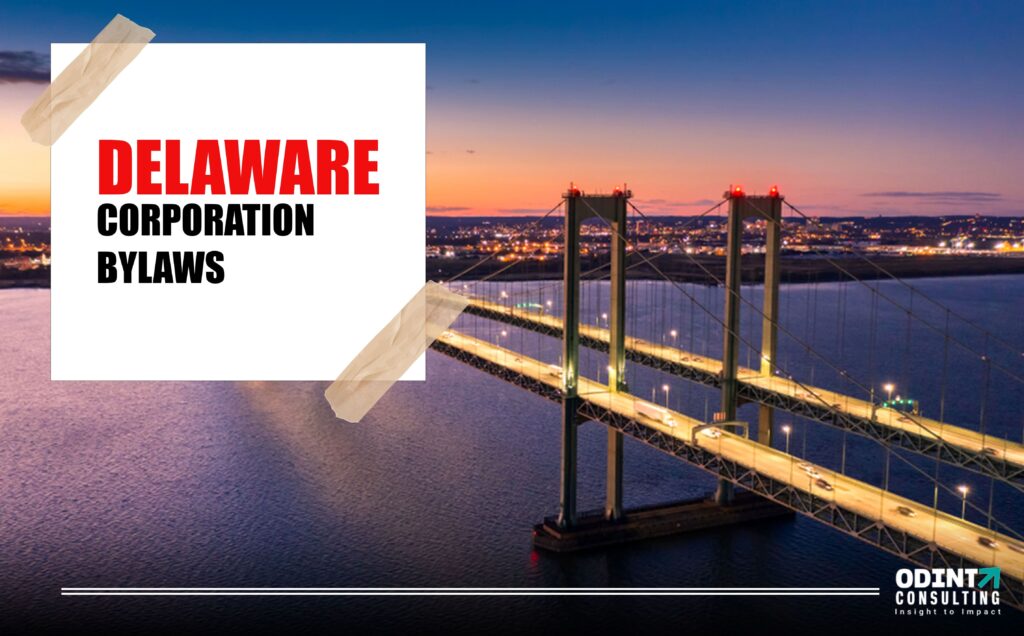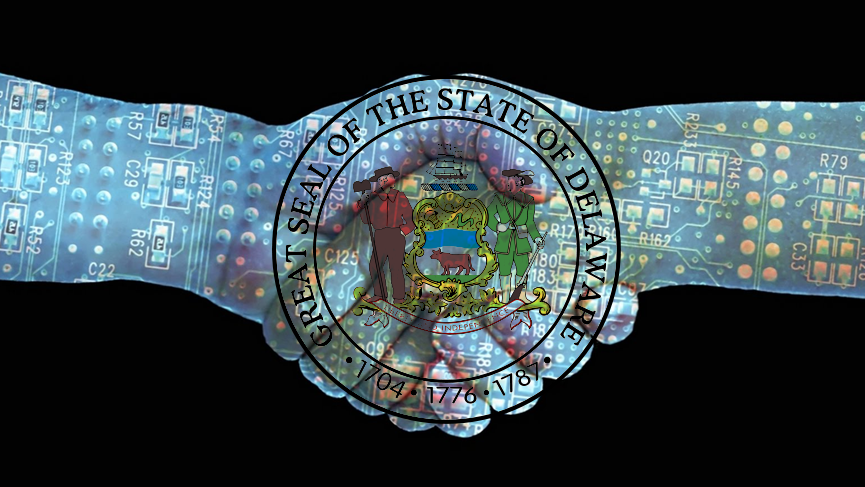Historical Context of Delaware Corporate Law: How Old Is Delaware Corporate Law

Delaware’s prominence as the leading jurisdiction for corporate law is not a recent phenomenon; it’s the culmination of a carefully cultivated legal environment spanning centuries. Its evolution reflects a dynamic interplay between legislative action, judicial interpretation, and the strategic choices of businesses seeking favorable legal frameworks. This historical context is crucial to understanding the state’s enduring influence on American corporate governance.
How old is delaware corporate law – The foundations of Delaware’s corporate law were laid long before its formal incorporation in 1787. Early colonial charters and the subsequent development of a robust court system established a framework conducive to business activity. However, the real catalyst for Delaware’s rise was its proactive approach to adapting its legal system to the evolving needs of corporations. This included streamlining incorporation procedures and fostering a judiciary known for its expertise in corporate matters. Unlike many other states, Delaware chose to specialize, creating a niche that attracted a growing number of businesses.
Early Development and the Rise of the General Corporation Law
The initial General Corporation Law of 1899 marked a significant turning point. This legislation modernized and simplified the process of incorporating businesses in Delaware, making it significantly more attractive than the more cumbersome processes in other states. This law provided a flexible and adaptable framework, allowing for a wide range of corporate structures and practices. The subsequent decades saw a series of amendments and refinements to the General Corporation Law, each designed to improve its efficiency and appeal to businesses. This period solidified Delaware’s reputation for providing a business-friendly environment, leading to a steady influx of corporate incorporations.
Key Legislative Changes and Judicial Decisions
Several key legislative changes and judicial decisions profoundly shaped Delaware corporate law. The adoption of the Delaware General Corporation Law in 1967 was pivotal, introducing modern corporate governance standards. Subsequent amendments addressed issues such as shareholder rights, director liability, and mergers and acquisitions. Landmark court cases, such as Smith v. Van Gorkom (1985), concerning director liability for breaches of fiduciary duty, and Revlon v. MacAndrews & Forbes Holdings (1986), concerning the duties of directors in change of control transactions, significantly impacted the development of Delaware corporate jurisprudence. These decisions established precedents that are still relevant today, setting high standards for corporate governance and board conduct.
A Timeline of Significant Milestones
Understanding the evolution of Delaware corporate law requires examining key milestones. The following timeline illustrates some of the most significant developments:
- 1899: Enactment of the first General Corporation Law, simplifying incorporation and attracting businesses.
- 1967: Adoption of a significantly revised General Corporation Law, reflecting modern corporate governance standards.
- 1985: Smith v. Van Gorkom decision establishes stricter standards for director liability.
- 1986: Revlon v. MacAndrews & Forbes Holdings decision clarifies director duties in change of control situations.
- Ongoing: Continuous legislative updates and judicial interpretations further refine Delaware corporate law, reflecting the changing landscape of business and finance.
Modern Challenges and Adaptations in Delaware Corporate Law

Delaware’s corporate law, while steeped in tradition, continually adapts to the evolving global landscape. The increasing interconnectedness of businesses and rapid technological advancements necessitate a dynamic approach to legal frameworks, pushing Delaware to refine its jurisprudence and maintain its position as a leading jurisdiction for corporate incorporation. This section explores how Delaware corporate law is responding to these modern challenges.
Globalization’s Impact on Delaware Corporate Law
Globalization has significantly impacted Delaware corporate law, particularly concerning cross-border transactions, international regulatory compliance, and the management of multinational corporations. Delaware courts have increasingly encountered cases involving foreign entities and complex international legal issues, requiring them to interpret and apply Delaware law within a global context. This has led to the development of specialized expertise within Delaware’s legal community and a greater emphasis on international legal principles in judicial decisions. The increasing use of Delaware law in international mergers and acquisitions exemplifies this trend.
Corporate Social Responsibility and Environmental Concerns in Delaware Corporate Law
While traditionally focused on shareholder primacy, Delaware corporate law is increasingly acknowledging the significance of corporate social responsibility (CSR) and environmental concerns. While the “business judgment rule” continues to protect directors’ decisions, there’s a growing awareness that considering ESG (Environmental, Social, and Governance) factors is not necessarily detrimental to shareholder value. Delaware courts are gradually grappling with how to balance shareholder interests with broader societal and environmental considerations. The increasing number of shareholder resolutions focused on ESG issues reflects this shift in expectations.
Emerging Business Models and Their Impact on Traditional Corporate Law Principles, How old is delaware corporate law
The rise of new business models, such as platform companies, sharing economy businesses, and decentralized autonomous organizations (DAOs), poses unique challenges to traditional corporate law principles. The lack of clear legal frameworks for these innovative structures necessitates creative interpretations of existing laws or the development of entirely new legal approaches. Delaware courts are confronted with the task of applying established legal principles to these novel business models, while also considering the potential need for legislative reforms to address the specific legal gaps that these new models reveal. For example, the legal status and governance of DAOs are still evolving and require innovative legal solutions.
Comparative Analysis of Delaware’s Approach to Modern Challenges
| Challenge | Delaware’s Approach | Jurisdiction 2 (e.g., UK) | Jurisdiction 3 (e.g., Germany) |
|---|---|---|---|
| Globalization | Adapting existing legal frameworks to international contexts; increased focus on international legal principles in judicial decisions. | Emphasis on cross-border regulatory cooperation and harmonization of legal standards. | Stronger emphasis on codetermination and stakeholder engagement in corporate governance. |
| CSR & Environmental Concerns | Gradual incorporation of ESG considerations into corporate governance; courts balancing shareholder interests with broader societal concerns. | Growing emphasis on mandatory reporting of ESG performance; increasing regulatory scrutiny of environmental impact. | Stronger legal framework for stakeholder engagement and environmental protection; more robust corporate social responsibility mandates. |
| Emerging Business Models | Case-by-case application of existing laws to new business models; potential for legislative reforms to address legal gaps. | Development of specific legal frameworks for certain emerging business models (e.g., fintech). | Cautious approach, prioritizing established legal structures and principles; slower adoption of new business models. |
The Future of Delaware Corporate Law

Delaware’s corporate law, while a cornerstone of American business, faces a dynamic future shaped by evolving societal expectations, technological advancements, and economic shifts. Predicting its trajectory requires considering both internal pressures for reform and external forces reshaping the corporate landscape. The coming decades will likely witness significant adjustments to maintain Delaware’s competitive edge and relevance.
The continued dominance of Delaware’s corporate law framework is not guaranteed. Several factors contribute to potential shifts, necessitating proactive adaptation and modernization.
Emerging Challenges to Delaware’s Corporate Law Framework
Several significant challenges threaten Delaware’s position as the preferred jurisdiction for corporate incorporation. Increased scrutiny of corporate governance practices, growing concerns about corporate social responsibility (CSR), and the rise of shareholder activism all contribute to a more complex and demanding regulatory environment. The increasing use of technology, particularly in areas like blockchain and decentralized autonomous organizations (DAOs), presents further challenges to traditional corporate structures and governance models. For example, the legal uncertainty surrounding the governance of DAOs requires Delaware to consider adapting its framework to accommodate these novel organizational forms. Furthermore, the rise of ESG (Environmental, Social, and Governance) investing necessitates a deeper consideration of the interplay between profit maximization and societal impact within Delaware’s corporate law. The growing pressure for greater transparency and accountability from stakeholders beyond shareholders alone requires Delaware to consider legislative or judicial changes to address these demands.
Potential Areas for Reform and Modernization
Delaware’s corporate law could benefit from several key reforms. Streamlining the incorporation process through technological advancements could improve efficiency and reduce costs for businesses. Clarifying the legal framework surrounding environmental, social, and governance (ESG) factors could provide greater certainty for companies seeking to integrate these considerations into their operations. For instance, Delaware could develop more explicit guidance on the duties of directors regarding ESG issues, addressing concerns about potential conflicts between fiduciary duty and the pursuit of broader societal goals. Another area ripe for modernization involves enhancing shareholder engagement and communication. Delaware could explore options to facilitate more effective communication between corporations and their shareholders, fostering better understanding and reducing potential conflicts. Finally, the state could consider updating its laws to explicitly address the legal challenges posed by emerging technologies such as blockchain and artificial intelligence, which are increasingly impacting corporate structures and operations. These reforms could strengthen Delaware’s position as a leader in corporate governance and attract more businesses to incorporate within its jurisdiction.
Predictions on the Evolution of Delaware Corporate Law
Given the ongoing pressures, it’s reasonable to predict several key evolutions in Delaware corporate law. We can expect a greater emphasis on transparency and accountability in corporate governance, driven by increased shareholder activism and public scrutiny. The incorporation of ESG factors into corporate decision-making will likely become more formalized, with clearer legal guidelines and expectations. Furthermore, Delaware’s legal framework will need to adapt to accommodate the rise of new organizational forms, such as DAOs, which challenge traditional notions of corporate structure and governance. This might involve creating new legal categories or modifying existing laws to account for the unique characteristics of these emerging entities. Finally, the increasing use of technology in corporate governance will necessitate the development of new legal frameworks to address the unique challenges and opportunities presented by these advancements. For example, the use of AI in decision-making processes could raise questions about liability and accountability that Delaware’s corporate law will need to address. These predictions reflect a move towards a more dynamic and adaptable corporate law framework, one that responds effectively to the evolving needs of businesses and society.

Tim Redaksi